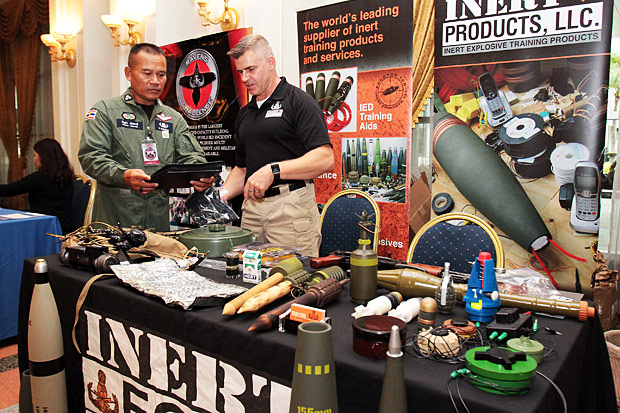
The Defence Technology Institute (DTI) says its counter-improvised explosive devices (IED) robots will be fully operational within a year, despite the agency's director expressing caution over their present capabilities.
Currently, the DTI's range of robots only have mobility function, meaning that they lack the practical bomb disposal abilities that would make them truly useful.
DTI director Sompong Mukdasakul said "full integration" of the robot's sensors, motors and external attachments is necessary before their deployment in operational areas such as the south of Thailand. "Right now we are at the basic development state but our objective is to develop high technology," he said.
He was speaking at a counter-IED seminar, part of the Ravens Challenge international training exercise which the military and police are taking part in over coming weeks.
The DTI is a government agency attached to the Ministry of Defence that is responsible for advancing the technological capabilities of the armed services. Some of its projects include rocket launch systems and military drones.
The DTI believes its collaboration with universities, such as Chiang Mai University, will be essential in achieving full integration of the robots. The institute praised the level of academic awareness of robots at Thai universities, as shown by a series of internal competitions.
This news comes after two IEDs were used at the shopping centre bombing in Pattani province in April.
Police and army explosive ordnance disposal teams import their robots, which Gen Sompong hopes to change as Thai-made robots improve in quality.
He hopes the D-Empir, the DTI's latest and most advanced model, will eventually become the main robot used by the army and police in their counter-IED operations.